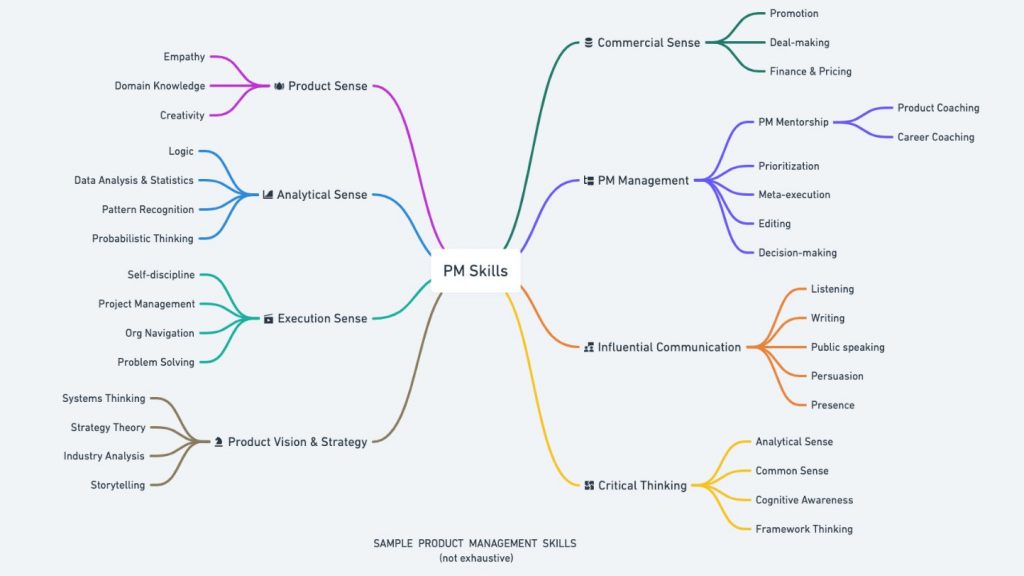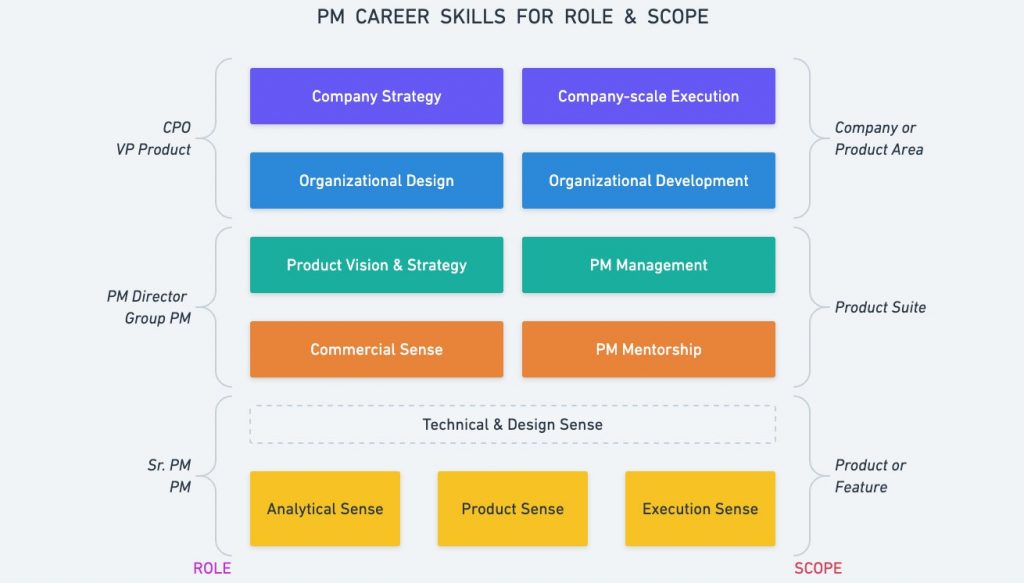A decade or two ago, it was common for engineers or graduates to complete their MBA and then take up a career in Marketing or Finance. Several industry leaders in these domains have come through this path. The explosive growth of IT services and followed by digital solutions has opened up new career opportunities in software engineering, design, quality assurance, and so on. In the world of digital solutions, the role of a Product Manager, Product Lead, or CPO has come into focus over the past few years.
As a digital transformation company, we at Robosoft have product management specialists in our team working closely with counterparts at client companies. So if you are considering a career in product management, this article attempts to answer a few key questions that you may have. In this article we are referring to Product Management from a digital experience perspective – be it a mobile app on a phone, a Smart TV app that is typically accessed via Firestick or Chromecast, or even a website.
What is Product Management?
A web search on the topic would result in videos and articles outlining a few common things: that despite the practice being around for a couple of decades there is still some ambiguity on what it’s all about. In 2012, Ben Horowitz, the legendary venture capitalist described a product manager as the ‘CEO of a product’. However, that may give connotations of an all-powerful role that has the power to be the final authority on every aspect of a product. According to Product Plan, Product management is the practice of strategically driving the development, market launch, and continual support and improvement of a company’s products. The role is pretty similar to brand management in consumer goods companies, specialized by giants such as Proctor & Gamble, Unilever, and others.
In 2019, Sherif Mansour, Distinguished Product Manager at Atlassian, an Australian company that develops products for software developers, project managers, and other software development teams, shared this video which could be a great place to start in terms of giving a perspective on various challenges of a product management role.
Another starting point would be read to this series of tweets from Shreyas Doshi who is considered an authority in this space. As Syed Abbas, our Principal Digital Consultant says ‘A great product manager ensures that all team members work harmoniously towards achieving the product vision. The key responsibilities include setting the long term vision and strategy, ensuring user engagement, satisfaction, and monetization’. In other words, product managers are responsible for the end-to-end product experience for users.
Why has Product Management gained prominence of late? Is it a fad or does it offer a long-term career opportunity?
The rise of Product Management as a career option can be linked to the uptake in the use of digital experiences by consumers and the rise of tech startups. Over the last few years, and accelerated fuelled by the COVID-19 pandemic, consumers have resorted to digital options for their day-to-day needs – be it banking, payments, hailing taxis, watching movies, or connecting on social media. Using digital products has become a way of life for a large section of society across the globe. Enterprises believe that their business success depends on the quality of their digital experience. Hence there is a premium on talent which can drive great product experiences.
Media too has celebrated the success of brands created for the digital world. Paytm, Netflix, Amazon, GoJek (an Indonesian SuperApp), Facebook, Hotstar, Twitter, Dunzo, WhatsApp are just some of the brands which get wide coverage for offering great product experiences. Companies too have given visibility for their product management teams, acknowledging them as key players in business success. As we increasingly depend on digital products to get things done or entertain us through streaming or gaming, the discipline of product management is not a fad and here to stay. Tech-enabled or tech-focused start-ups and established businesses such as CRED, Dream11 among others offer an attraction as a career option as opposed to the old practice of moving to marketing or finance after completion of an MBA.
Are there college courses available? How can I formally learn about Product Management?
As of now, there are no college degrees in product management. However, specialist online platforms such as The Product School and many other ‘EdTech’ brands such as UpGrad, Udemy, or UpGrad offer courses in Product Management (links offered for reference only and not an endorsement). You can read about the courses and choose to opt for a relevant one.
What are the skill sets required to be a good Product Manager?
Before we speak about skill sets, let us what Product Managers typically do. They:
- Define what we should build and why
- Partner with software engineering, UX, and cross-functional stakeholders such as legal, sales, and marketing to ensure that the product or the feature is built
- Evangelize the product with a clear vision internally and externally
- Define success metrics, goals for the team, and act as the user voice for the product
It is important to understand that Product Managers often need to thrive in ambiguity. They need to do tightrope walking by understanding users as well as team partners, the engineering challenges, and time constraints. This 2017 video ‘20 Years of Product Management in 25 Minutes by Dave Wascha’ is a good watch on key aspects of the role.
So the core functions of a product manager include:
- Be the voice of users in decisions that affect the product roadmap and experience
- Hypothesize and then prioritize what users want the most
- Ensure your product and/or features are aligned with business goals
- Have a vision for how the product looks and evolves
- Make sure the team understands what to build, who to build for, and why
- Be the glue that binds all teams (UX, marketing, sales, etc)
A common mistake is to mistakenly equate product management with program management. Product managers define, scope, and focus on WHAT the end-to-end experience should be while program managers track dependencies, and ensure that the product is delivered on time.
Should Product Managers be experts in software engineering too?
In Product Management, there could be two aspects: technical side as well as pure ‘consumer product management’. The former comes with an Engineering or Computer Science background. They are typically involved from the strategy development till the execution and final launch of the product. They oversee end-to-end execution till the launch of a product by managing the design and the engineering team. The latter usually have a Design and Business background. They tend to be experts in identifying business and consumer needs by working very closely with them, identification of pain-points, developing personas, creating end-to-end user journeys, and product road-mapping.
Either way, good product managers must understand enough ‘tech’ to speak confidently and partner with the engineering team, to make them understand what they should be building. They should have a good grasp on tech to understand what can be done (aka “is this even feasible?”). Product Managers are expected to describe and understand the trade-offs involved and make necessary changes to the product. Product Managers should also understand data; they should take a data-driven approach in identifying areas of improvement or the next big opportunity for the product.
Shreyas Doshi captures some of the skills required thus:

Is Product Management a career option for all or only for a certain kind of aptitude?
Before you consider a career in Product Management ask yourself: Are you passionate about understanding what problem a business is trying to solve and for whom? Do you put yourself in the shoes of the user, empathize with what they want and how that improves the product? If so you could pursue this discipline which has great potential for growth.
Shreyas Doshi has a great summary on the scope for growth:

Some of the traits which may be useful for growth in this discipline would be:
- Ability to break down a problem into smaller parts. Remember, this is not a job about you building a bridge yourself but knowing what it takes to get a team to build one which consumers love
- Understanding what’s important for the consumer and then be able to whiteboard ideas, jam with the UX team
- Be creative; this is a job that solves problems and calls for innate creativity. It doesn’t mean that you have to design skills but an ability to think of unusual, unexpected ingenious solutions
- Strategic — constantly evaluate the competitive landscape, and think about the product advantage
- Have a strong handle on the economics of the business and user dynamics
- Influence people to go after high impact ideas
- Be the leader — prioritize, get resources to build things that matter to users; and ruthlessly say no to things that don’t add value to the business or the consumer needs
- Message your product and help users use and understand your product or feature easily
- Most importantly, curiosity and a growth mindset
How can I find a job in product management if I don’t have experience?
It is generally believed that MBAs typically have the right skillsets for product management with an inkling for processes, logical thinking, GoToMarket skills, and customer management. Product Management is a natural fit for those with some experience in Business Analysis. Even if you are a fresher you can start in program management and progress towards product management. More importantly:
Learn: Read about products, be curious about what makes them successful and how they evolve. Portals such as Product Hunt and articles on product management at Medium can be a good start. A simple search for Product Management on YouTube can also give you many useful videos. You can also follow Twitter lists on ‘Product management’. Meet and learn from experienced product managers – ask them what their day looks like, what problems they think about, and what challenges they face in solving them. Books such as Art of product management, The design of everyday things, Creative confidence, and The lean start-up are some books to start off.
You can also proactively think of a problem you want to solve and ideate a solution. Another interesting act which manifests your passion for the discipline is to intern as a product manager in an enterprise.
At Robosoft, our Product Managers work closely with enterprises that already have product teams of various sizes and skills. As a full-service digital transformation company, we definitely see vast potential for product management as a sought-after skill in the years to come. After all, it is the product experience that makes the enterprise.





